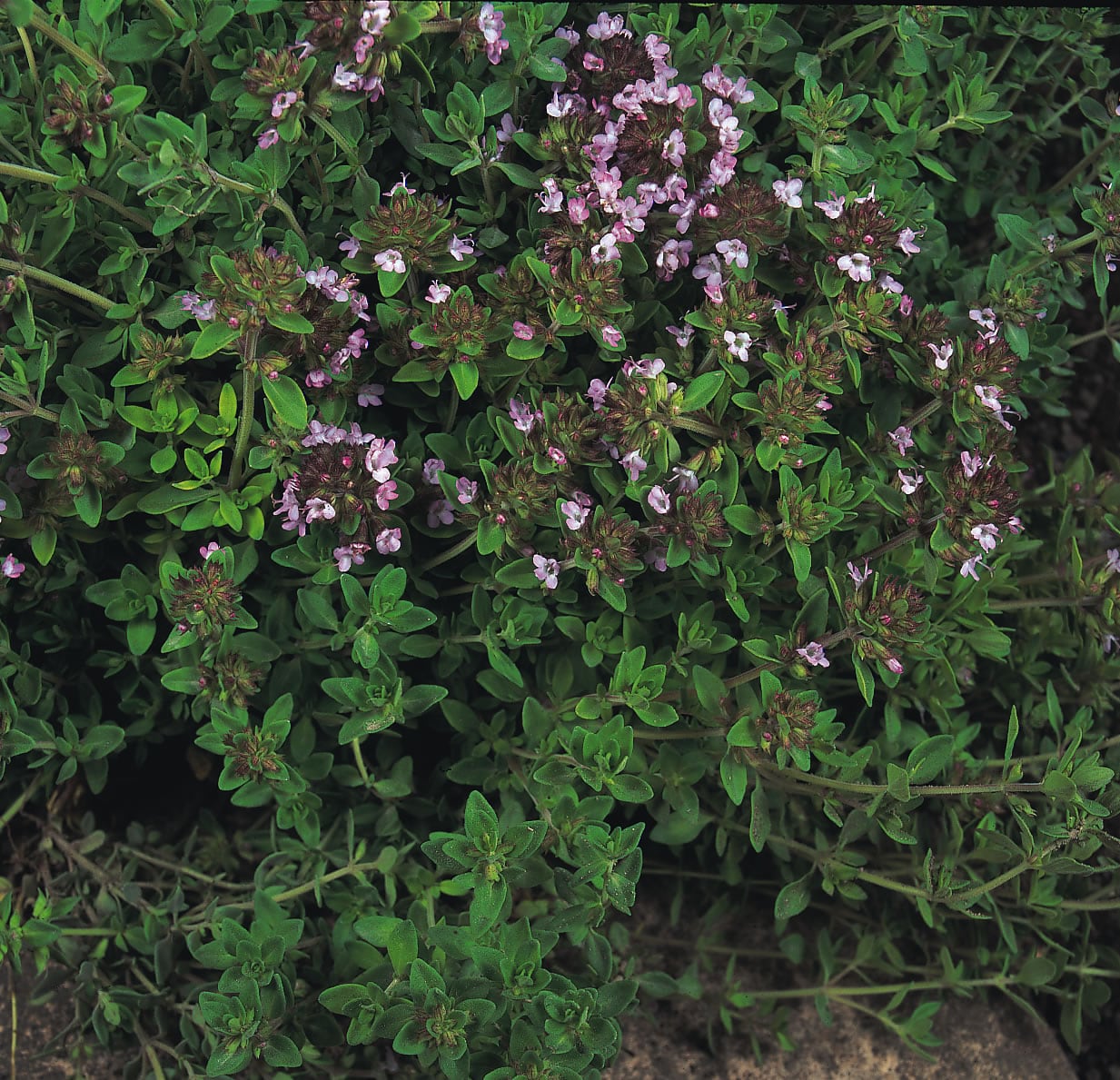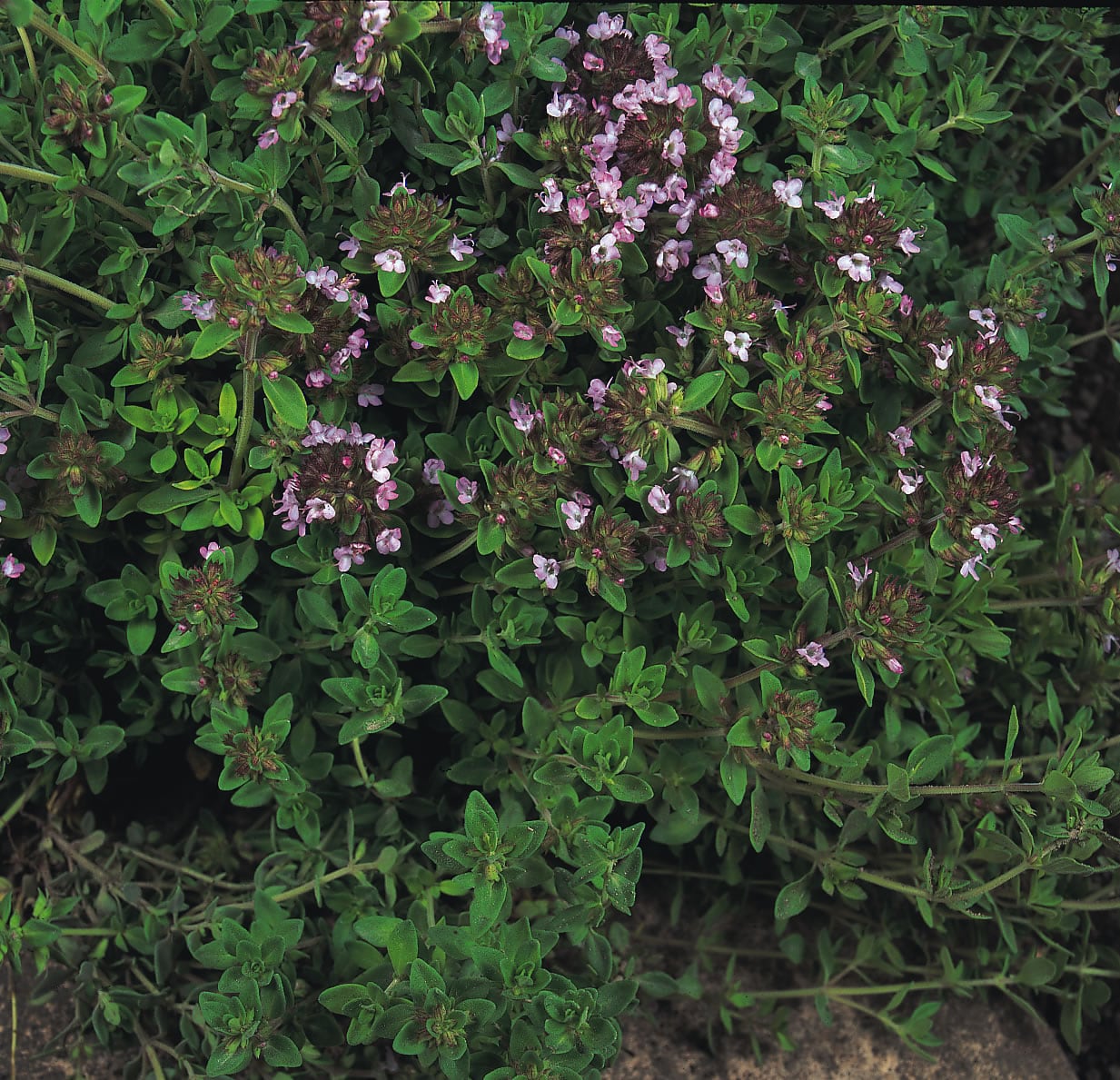Thyme Common
Thyme Common
Packet Size: 100 seeds
Couldn't load pickup availability
Common Thyme, Thymus vulgaris, is a popular and incredibly versatile herb. It's a must-have in the kitchen, especially for dishes that benefit from slow cooking—think casseroles, stews, and roasts. But don’t stop there! Thyme pairs beautifully with fish, tomato sauces, onions, potatoes, carrots, aubergines, peppers, and courgettes.
Beyond the kitchen, this hardy perennial also shines in the garden. It can be clipped to form a neat, fragrant edging along beds and paths, adding both beauty and function to your outdoor space.
Want to learn more? There’s a whole world of uses and benefits waiting for you—read on to discover more about this wonderful herb
This variety is part of our naturally nurtured range, the seed comes from an organic source
🌱 Seasonal Growing Guide
SPRING
Sow in trays on the surface of the compost (seed is very fine), do not cover. Providing bottom heat (15-20°C) can be helpful but is not essential. Best with minimum water as they are prone to damping off. When large enough to handle harden off & plant them into their permanent position in late spring or early summer 15cm apart for an edging and 30cm space for individual plants. They like a well-drained spot; they are drought tolerant and are happy in containers. Trim back older plants in spring
SUMMER
The best flavour for culinary use is before flowering however this evergreen can be harvested all year round for use fresh or dried. Trim plants after flowering to keep them neat and more compact.
WINTER
If container grown keep dry and protect them.
📌USES
WILDLIFE FRIENDLY
- Hoverfly heaven, attracting these helpful insects all summer long — also a hit with bumblebees and honeybees
- Butterflies like the Small Tortoiseshell, Peacock, Gatekeeper, Common Blue and Small Skipper often stop by for a nectar top-up.
- A food plant for the Lace Border moth (in decline) and the small but striking Mint Moth.
- Nectar source for the Slender Scotch Burnet (in decline) and the nationally scarce Thrift Clearwing moth.
- Listed by the RHS as a pollinator-friendly plant.
EDIBLE
- An excellent herb for flavouring stuffing (leaves), stews and casseroles (sprigs)
- Use in a bouquet-garni.
- Pies and chutneys get an aromatic boost from Thyme.
- Thyme will flavour many meat, fish and egg dishes, either by adding sprigs where the leaves will melt from them into the dishes (remove stalks after cooking), or by stripping the leaves and flowers—a good method for using in marinades
- Thyme helps break down fatty foods—perhaps use some with lamb.
- Edible flowers
IN THE GARDEN
- Considered pedestrian proof Common Thyme can be used as a path edging, in planting holes in gravel or a patio
- Once established it is drought tolerant and will be quite happy in a rockery, in a wall or a bed baked by the sun.
- It can be clipped to make a low edging, use in place of box, up to 30cm tall and evergreen
- Thyme does not age gracefully—it eventually turns straggly & woody so replant every few years for the best quality flavour and for more compact plants.
HISTORICAL
- Used by the Ancient Egyptians in oil form for embalming.
- The Greeks used it in their baths and as an incense in their temples.
- The Romans used it to purify their rooms and to flavour cheese and drinks
- In the Middle Ages drinking it was part of a ritual to undertaken to see fairies.
- Also in the Middle Ages the herb was placed beneath pillows to aid sleep and ward off nightmares
- Owing to its antiseptic properties, judges used it in Elizabethan times, along with Rosemary, to prevent jail fever.
- A sprig in the hair of fair maidens was thought to make them irresistible to men
- The word 'Thyme' comes from the Greek word thymon meaning 'courage' and sprigs were given to knights and soldiers as they were marching to war to impart courage and strength
- The antiseptic properties of Thyme have been utilised for thousands of years in Roman, Greek, and Indian medicine.
MEDICINAL
- Please Note: we do not promote the medicinal use of plants – guidance and information should be sought elsewhere.
- A strongly antiseptic and antifungal herb due to the essential oil thymol, an infusion can be used as an external wash for cuts and sores.
- Thymol is antiseptic and has expectorant properties which leads it to being used for cough syrups which help kill bacteria and loosen phlegm.
- Thymol is thought to have a carminative effect in the digestive tract (gets rid of gas!)
- Thymol is an active ingredient in various commercially produced mouthwashes
- A tea made from thyme can be used as a gargle to soothe sore throats
- Chewing a little fresh thyme can relieve inflamed gums and sore mouths
- Thyme tea can be used as a footbath
OTHER
- It is used to flavour Benedictine liqueur
- Use in pot pourri
- Add a sachet of thyme to your bath water instead of chemical bubbles.

Collapsible content
Sowing
- Mar
- Apr
Harvesting / Flowering
- Jan
- Feb
- Mar
- Apr
- May
- Jun
- Jul
- Aug
- Sep
- Oct
- Nov
- Dec

